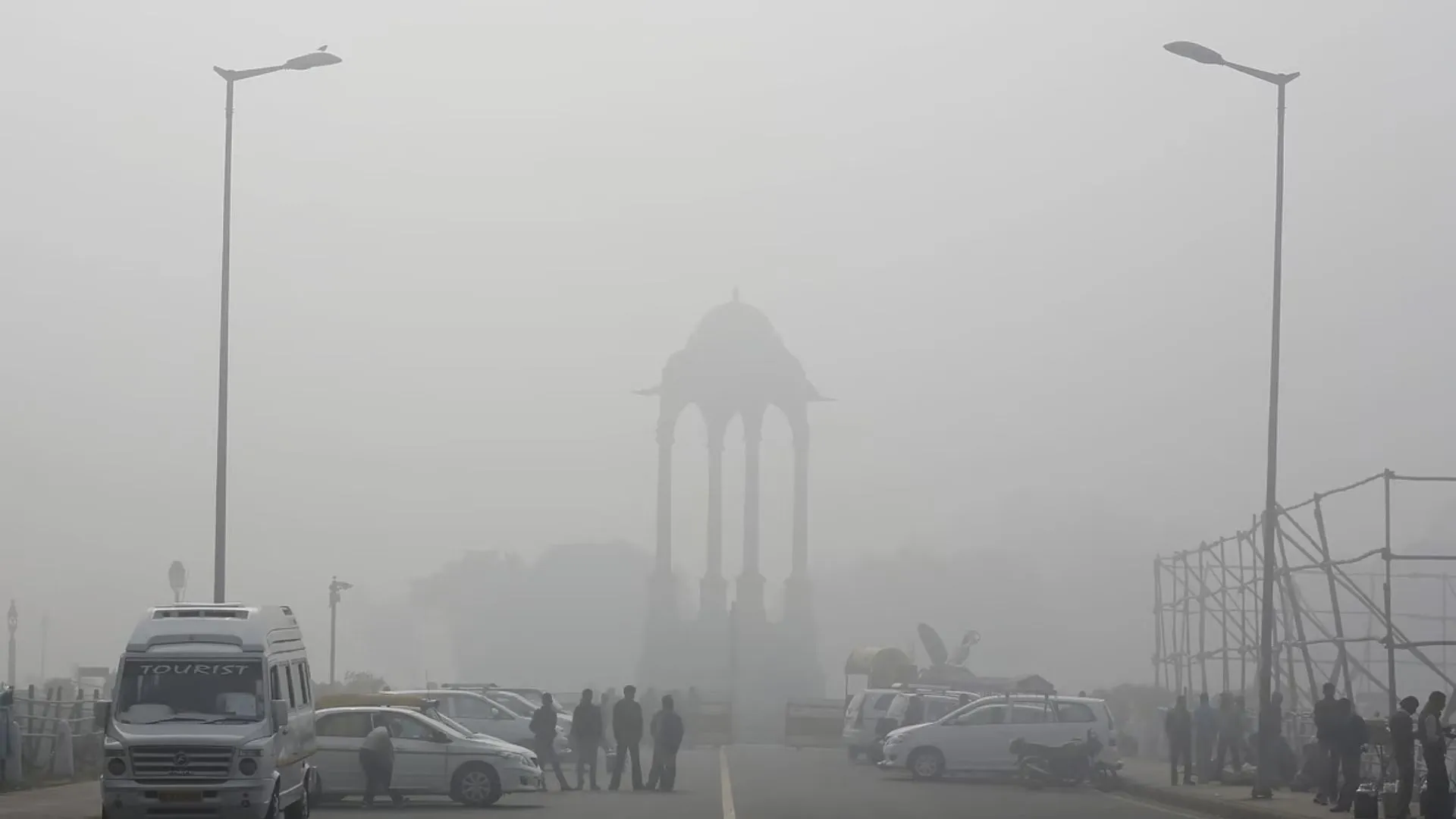As the air quality in Delhi continues to deteriorate, the capital has implemented its stage-4 emergency anti-pollution measures, as the AQI now reflects severely poor air quality. As of Monday the air quality index stood at 481 at 6 a.m., which is classified as “severe plus” and has serious consequences over a person’s health.
The emergency protocol was announced on Sunday evening as the AQI in Delhi hit 457. The stage-4 protocol would ensure ban on diesel trucks in Delhi, closure of schools and a switch to remote working as per the advisory givem by Center of Air Quality Management (CAQM).
An AQI between 0 and 50 is considered “good”, 51 and 100 is “satisfactory”, 101 and 200 is “moderate”, 201 and 300 is “poor”, 301 and 400 is “very poor”, 401 and 450 is “severe”, and above 450 is “severe plus”.
Delhi’s GRAP-4 Guidelines: Essential Restrictions for Pollution Control
In order to tackle the worsening air quality in Delhi the CAQM has takena strigent 8-point action plan aimed at bringing down the current rate of pollution and its effect on public health. The protocol for airt pollution control will sweep across the entire National Capital Region (NCR) and will remain in place till the rising air pollution problem is dealth with.
Ban on Truck Entry
Strict restrictions on the entry of non-essential trucks into Delhi would be imposed. The provision for transport of essential commodities, providing essential services, or running on alternative fuels like LNG, CNG, electric power, or BS-VI diesel engines shall be allowed.
Restrictions on Light Commercial Vehicles (LCVs)
Light Commercial Vehicles from other states too shall not be permitted to enter Delhi. Only electric, CNG as well as BS-VI diesel vehicles shall be permitted, of course with some exemptions made for those engaged in the essential services.
Diesel Vehicle Ban
As part of pollution abatement initiatives, the government has been keen on implementing stringent restrictions on Delhi-registered BS-IV and lower diesel-powered MGVs and HGVs. Vehicles carrying essential goods and services would be exempted.
Suspension of Construction Activities
All construction and demolition works, including infrastructure works for public roads, flyovers, and power transmission lines, will be stopped. The stoppage also covers lineal public works such as pipelines and telecommunication services.
Closure of School Institutions
All in-person classes of all students except for classes 10 and 12 will be suspended since Delhi had crossed alarming levels of pollution for the sixth day straight. This is according to Delhi Chief Minister Atishi due to the deteriorating air quality.
Restrictions in Office Work
Public offices should also be implemented at 50% capacity, and the rest are to work from their respective homes. Determination of implementing the policies of working from home should be decided at the central government level to its employees.
Possible Additional Measures
With the pollution levels remaining critical, authorities in Delhi and the NCR states may consider additional emergency measures. This can comprise closing colleges and educational institutions, non-essential commercial activities, and even an odd-even vehicle scheme.
Delhi’s Air Quality Crisis
There has been a sharp deterioration in air quality in New Delhi over the past week, with the AQI touching 481 on Monday morning. Several areas recorded an AQI of more than 500. The officials attribute this deterioration to unfavorable weather conditions, which worsened the smog situation.
Contribution of Stubble Burning
The weather forecasting agency of the Ministry of Earth Sciences, SAFAR, reported that stubble burning has accounted for around 38% of New Delhi’s pollution this year, mainly from neighboring states of Punjab and Haryana. Stubble burning refers to the burning of leftover rice straw to clear fields, which worsens the pollution of the region.
Seasonal Smog Issues
Every winter, New Delhi grapples with dense smog: a lethal cocktail of smoke and fog. This is when cold air traps dust, pollutants, and emissions from illegal farm fires. The mix of high pollution, humidity, calm winds, and plummeting temperatures was going to worsen the situation as smoke conditions and low wind speeds were likely to hold until Saturday, officials said.























